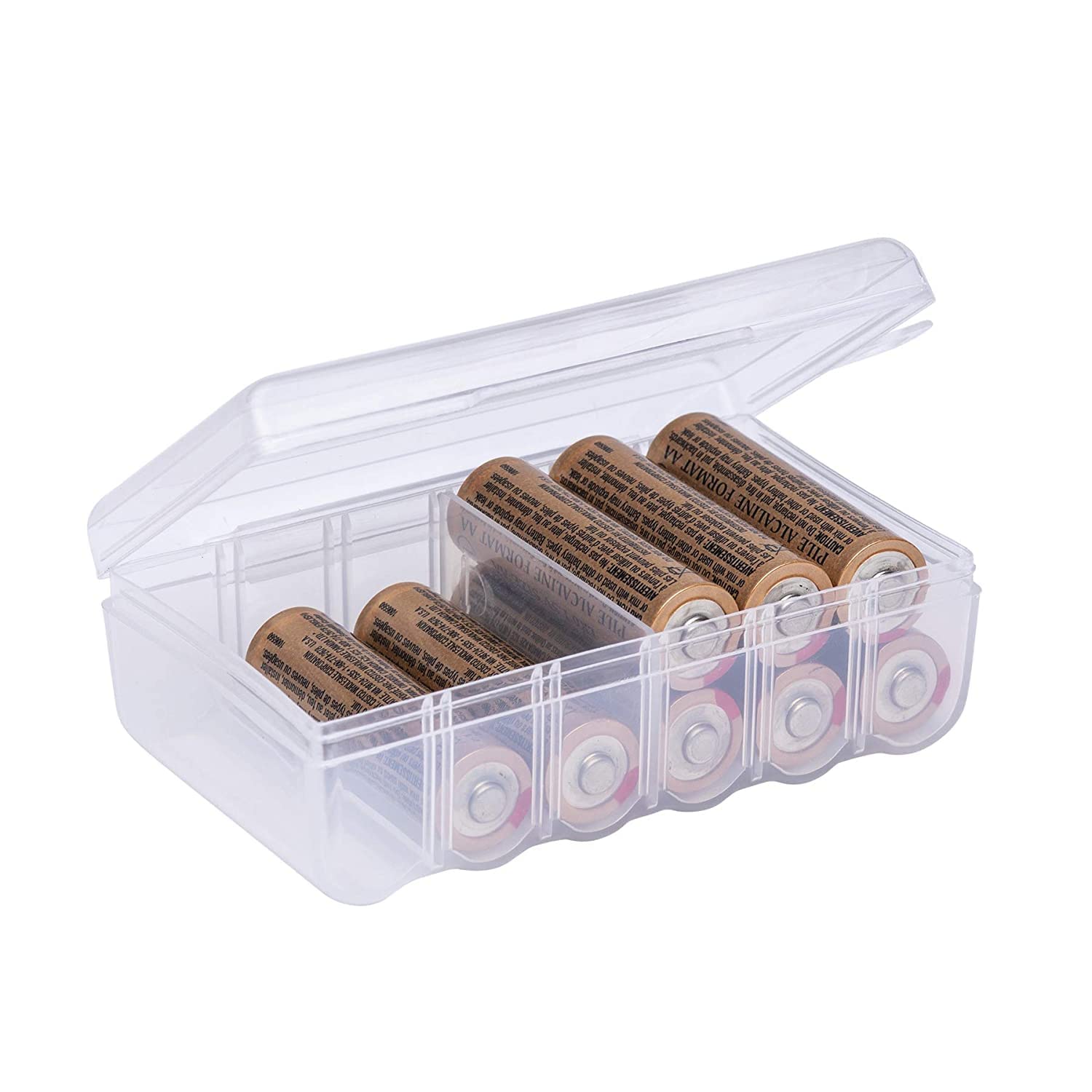

Articles
How To Store Aa Batteries
Modified: January 6, 2024
Learn the best way to store AA batteries to extend their lifespan and prevent leakage. Read our informative articles for helpful tips and tricks.
(Many of the links in this article redirect to a specific reviewed product. Your purchase of these products through affiliate links helps to generate commission for Storables.com, at no extra cost. Learn more)
Introduction
AA batteries are a common power source used in various electronic devices, ranging from remote controls to cameras and flashlights. The proper storage of AA batteries is crucial to maintain their performance, prevent leakage, and ensure their longevity. In this article, we will explore the different types of AA batteries, the optimal storage conditions, recommended storage methods, tips for prolonging battery life, common storage mistakes to avoid, and the importance of recycling and disposing of AA batteries responsibly.
Whether you have a stockpile of AA batteries for emergencies or simply use them regularly, understanding how to store them correctly is essential to extend their lifespan and avoid potential hazards. Improper storage can lead to leakage, corrosion, and even damage to the devices they are used in.
By following the appropriate storage guidelines and implementing best practices, you can ensure that your AA batteries remain in optimal condition, ready to power your devices whenever you need them.
Key Takeaways:
- Proper storage and maintenance of AA batteries are essential for optimal performance and longevity. Consider the type of battery, storage conditions, and recommended methods to ensure safe and reliable power for your devices.
- Responsible recycling and disposal of AA batteries are crucial for environmental protection. Find designated recycling centers, retailers with recycling programs, and follow local regulations to minimize the impact of hazardous materials on our planet.
Read more: How To Store Aa And Aaa Batteries
Types of AA Batteries
AA batteries come in various types, each with its own characteristics and advantages. Understanding the differences between these types can help you choose the most suitable option for your needs.
1. Alkaline Batteries: Alkaline batteries are the most common type of AA batteries. They are affordable, readily available, and offer a good balance of performance and cost-effectiveness. Alkaline batteries are ideal for everyday devices with moderate power demands.
2. Lithium Batteries: Lithium AA batteries are known for their long life and excellent performance in high-drain devices. They can deliver constant power output even at low temperatures, making them a popular choice for outdoor activities and electronic devices that require more energy.
3. Rechargeable Nickel-Metal Hydride (NiMH) Batteries: NiMH AA batteries are a popular choice for those looking for a more eco-friendly and cost-effective option. They can be recharged numerous times and offer a relatively consistent power output throughout their cycle. NiMH batteries are suitable for devices with moderate power demands.
4. Rechargeable Lithium-ion (Li-ion) Batteries: Li-ion AA batteries are a newer and more advanced type of rechargeable batteries. They offer high energy density, longer cycle life, and low self-discharge rates. Li-ion batteries are often used in high-performance devices such as digital cameras and power-hungry portable electronics.
It is important to note that not all devices are compatible with rechargeable batteries, so it is essential to check the device specifications and manufacturer recommendations before choosing a specific type of AA battery.
When selecting AA batteries, consider the power requirements of your devices, their expected usage, and your budget. Choosing the right type of AA battery will ensure optimal performance and longevity for your electronic devices.
Proper Storage Conditions for AA Batteries
To maintain the performance and extend the lifespan of AA batteries, it is essential to store them in appropriate conditions. Here are some key factors to consider when storing AA batteries:
1. Temperature: AA batteries should be stored in a cool, dry place with a moderate temperature. Extreme heat or cold can negatively impact the battery’s performance and lead to reduced capacity or leakage. Avoid storing batteries in areas exposed to direct sunlight or near sources of heat like radiators or ovens.
2. Humidity: Excessive humidity can contribute to corrosion and leakage in batteries. Choose a storage location with low humidity levels to prevent moisture from affecting the batteries. Avoid storing them in damp environments such as basements or bathrooms.
3. Air Ventilation: Proper ventilation is important when storing AA batteries. Ensure that the storage area is well ventilated to prevent the build-up of gases released by the batteries, especially if you are storing a large number of batteries in one place.
4. Separation: It is crucial to store AA batteries separately from other metal objects, especially ones that conduct electricity. When batteries come into contact with metal objects, it can cause short circuits and safety hazards. Use individual battery cases or separate compartments in storage containers to keep them isolated from other items.
5. Secure Storage: Keep AA batteries in a secure and stable position to avoid accidental damage or leakage. Avoid storing them in loose pockets or containers where they can collide with other objects and potentially cause a short circuit or damage the battery’s casing.
By adhering to these proper storage conditions, you can ensure that your AA batteries retain their performance and remain safe and reliable for future use. Implementing these guidelines will help prevent potential hazards and extend the lifespan of your batteries.
Recommended Storage Methods
To store AA batteries effectively and keep them organized, consider implementing the following recommended storage methods:
1. Battery Cases: Battery cases are specifically designed to hold and protect AA batteries. These cases come in various sizes and can hold multiple batteries, keeping them securely in place and preventing accidental short circuits. Look for cases with compartments that provide individual slots for each battery.
2. Battery Organizers: Battery organizers are convenient storage solutions that help keep AA batteries organized and easily accessible. These organizers typically come with compartments or slots for different battery sizes, allowing you to store your batteries in one central location. Some organizers even come with built-in testers to check the charge level of your batteries.
3. Storage Containers: If you prefer a DIY approach, you can use small plastic containers or resealable plastic bags to store AA batteries. Make sure the containers or bags are clean and dry before placing the batteries inside. Remember to keep the batteries separate from each other to prevent contact and potential short circuits.
4. Original Packaging: If you have unused AA batteries in their original packaging, it is a good idea to keep them stored in their original containers. The original packaging provides some level of protection against physical damage, and the individual compartments help keep the batteries isolated from each other.
Regardless of the storage method you choose, always label your batteries with the date of purchase or expiration date. This way, you can easily keep track of their age and replace them when necessary to ensure optimal performance.
Remember to store your batteries in a location away from children and pets to avoid any accidental ingestion or misuse.
By using these recommended storage methods, you can keep your AA batteries organized, protected, and readily available for use, while also minimizing the risk of damage or leakage.
Store AA batteries in a cool, dry place at room temperature. Avoid storing them in extreme temperatures or humid environments, as this can reduce their performance and lifespan.
Tips for Prolonging Battery Life
To maximize the lifespan and performance of AA batteries, consider implementing the following tips:
1. Remove Batteries from Unused Devices: If you have devices that won’t be used for an extended period, such as a remote control or a flashlight, remove the batteries. This prevents any potential corrosion or leakage that could occur over time.
2. Store Batteries at Room Temperature: As mentioned earlier, storing batteries at moderate temperatures helps maintain their performance. Avoid exposing them to extreme heat or cold, as it can reduce their capacity and overall lifespan.
3. Avoid Mixing Old and New Batteries: When using multiple batteries in a device, it is best to use batteries of the same type and age. Mixing old and new batteries can result in uneven power distribution and inconsistent performance. It’s recommended to replace all batteries at once to ensure optimal performance.
4. Use the Right Battery for the Purpose: Different devices have varying power requirements. Using batteries with appropriate power ratings for each device can help prolong battery life. Avoid using higher capacity batteries in low-power devices, as it can lead to excessive discharge and potential leakage.
5. Minimize High-Drain Usage: High-drain devices, such as digital cameras or gaming controllers, can drain batteries quickly. Limit the usage of these devices or consider using rechargeable batteries specifically designed for high-drain applications.
6. Keep Batteries Clean: Ensure that the battery contacts are clean and free from any debris or corrosion. If required, use a soft cloth or cotton swab dipped in vinegar or lemon juice to gently clean the contacts. This helps maintain good conductivity and prolongs battery life.
7. Charge Rechargeable Batteries Properly: If you are using rechargeable AA batteries, follow the manufacturer’s instructions for charging. Overcharging or undercharging can significantly reduce the battery’s lifespan. Use a reliable and appropriate charger to ensure optimal charging and avoid overcharging.
8. Recharge Unused Rechargeable Batteries: If you have rechargeable batteries that haven’t been used for an extended period, make sure to recharge them before using them again. Rechargeable batteries can self-discharge over time, and recharging them helps restore their capacity.
By applying these tips, you can maximize the lifespan of your AA batteries and ensure that they deliver optimal performance throughout their usage. Remember to always follow the manufacturer’s guidelines and recommendations for each specific type and brand of battery.
Read more: How To Recharge AA Batteries In Freezer
Common Battery Storage Mistakes to Avoid
When it comes to storing AA batteries, it’s important to avoid common mistakes that can lead to reduced performance or potential hazards. Here are some common battery storage mistakes to avoid:
1. Storing Batteries Loose: Storing loose batteries in a drawer or container without individual compartments can increase the risk of short circuits and accidental damage. Always store batteries in a proper case or organizer to keep them secure and isolated from each other.
2. Disregarding Expiration Dates: AA batteries have an expiration date printed on their packaging. Using expired batteries can result in reduced capacity, unreliable performance, and potential leakage. Always check the expiration date before using or storing batteries.
3. Ignoring Leaking Batteries: If you notice any signs of leakage, such as a white powdery substance around the battery or a bloated casing, do not ignore it. Leaking batteries can cause damage to the devices they are in and pose a safety risk. Dispose of leaking batteries properly and clean any affected areas.
4. Storing Batteries with Devices: Leaving batteries inside devices for extended periods, especially when the devices are not in use, can lead to corrosion and potential damage. Remove batteries from devices before storing them and keep them in a separate, appropriate storage container.
5. Improper Disposal: Improperly disposing of AA batteries can harm the environment. Avoid throwing batteries in regular household waste. Instead, recycle them at designated recycling centers or drop-off locations. Many electronics and battery retailers also offer battery recycling programs.
6. Mixing Different Battery Types: Mixing different types of AA batteries, such as alkaline and rechargeable batteries, can result in inconsistent performance and may even cause damage to devices. Always use the same type and brand of batteries in a device to ensure compatibility and optimal performance.
7. Storing Batteries in Extreme Temperatures: Extreme temperatures, both hot and cold, can negatively impact battery performance and reduce their lifespan. Avoid storing batteries in areas exposed to direct sunlight, near heaters, or in freezing temperatures.
8. Overloading Batteries: Avoid overloading batteries by using them in devices that require a higher voltage or power than they are designed for. This can lead to excessive discharge, reduced performance, and potential damage to the batteries and devices.
By avoiding these common storage mistakes, you can maintain the performance and safety of your AA batteries, prolonging their lifespan and ensuring they are ready for when you need them.
Recycling and Disposing of AA Batteries
Proper disposal and recycling of AA batteries are essential to protect the environment and prevent potential harm from hazardous materials. Follow these guidelines to ensure the responsible disposal of AA batteries:
1. Identify Recycling Centers: Look for designated recycling centers or drop-off locations in your area that accept household batteries. Many municipalities have specific facilities or programs for battery recycling. Check with your local waste management authority or visit their website for information on battery recycling options.
2. Battery Retailers and Electronics Retailers: Many battery retailers and electronics stores have dedicated recycling programs for disposal of used batteries. They often provide collection points where you can drop off your old AA batteries for proper recycling.
3. Call2Recycle Program: The Call2Recycle program operates in multiple countries and allows consumers to drop off their used batteries for recycling. They have a network of participating retail locations, making it convenient to find a drop-off point near you.
4. Metal Recycling Facilities: Some metal recycling facilities also accept household batteries for recycling. Check if there are any metal recycling centers in your area that accept batteries and follow their specific guidelines for drop-off.
5. Rechargeable Battery Recycling: For rechargeable AA batteries, consider recycling them through programs specifically designed for rechargeable batteries. Organizations like the Rechargeable Battery Recycling Corporation (RBRC) offer convenient drop-off locations and recycling options for rechargeable batteries.
It’s important to note that AA batteries, especially alkaline batteries, do not contain hazardous materials in levels that require special disposal methods. However, proper recycling is still encouraged to prevent unnecessary waste and to recover valuable materials.
When it comes to disposing of AA batteries that cannot be recycled, such as those with leakage or severe damage, wrap them in tape to prevent contact and place them in a sealed plastic bag before disposing of them in regular household waste.
Always follow the local regulations and guidelines for battery disposal in your area. Improper disposal of batteries can lead to environmental pollution and potential harm to the ecosystem.
By responsibly recycling and disposing of AA batteries, you can contribute to a cleaner environment and minimize the impact of hazardous materials on our planet.
Conclusion
Proper storage and maintenance of AA batteries are crucial to ensure their performance, longevity, and safety. By following the guidelines and best practices outlined in this article, you can maximize the lifespan of your batteries and avoid potential hazards.
Understanding the different types of AA batteries available and choosing the appropriate one for your devices is the first step. Consider factors such as power requirements, expected usage, and budget to make an informed decision.
Ensuring proper storage conditions for AA batteries is essential. Store them in a cool, dry place with moderate temperature and low humidity levels. Avoid mixing them with other metal objects and ensure proper ventilation.
Choose recommended storage methods such as battery cases, organizers, or original packaging to keep your AA batteries organized, secure, and protected from damage. Labeling them with dates and regularly checking for expiration dates can help you keep track of their age and performance.
Implementing tips for prolonging battery life, such as removing batteries from unused devices, using the right battery for the purpose, and minimizing high-drain usage, can extend their overall lifespan and optimize their performance.
Avoid common battery storage mistakes, including storing batteries loose, disregarding expiration dates, ignoring leaking batteries, and mixing different types of batteries.
Finally, remember the importance of recycling and disposing of AA batteries responsibly. Identify recycling centers, retailers with battery recycling programs, or metal recycling facilities to properly dispose of your used batteries and contribute to a cleaner environment.
By following these guidelines, you can ensure that your AA batteries are stored safely, perform optimally, and have a minimal impact on the environment. Take care of your batteries, and they will continue to power your devices efficiently for a long time to come.
Frequently Asked Questions about How To Store Aa Batteries
Was this page helpful?
At Storables.com, we guarantee accurate and reliable information. Our content, validated by Expert Board Contributors, is crafted following stringent Editorial Policies. We're committed to providing you with well-researched, expert-backed insights for all your informational needs.
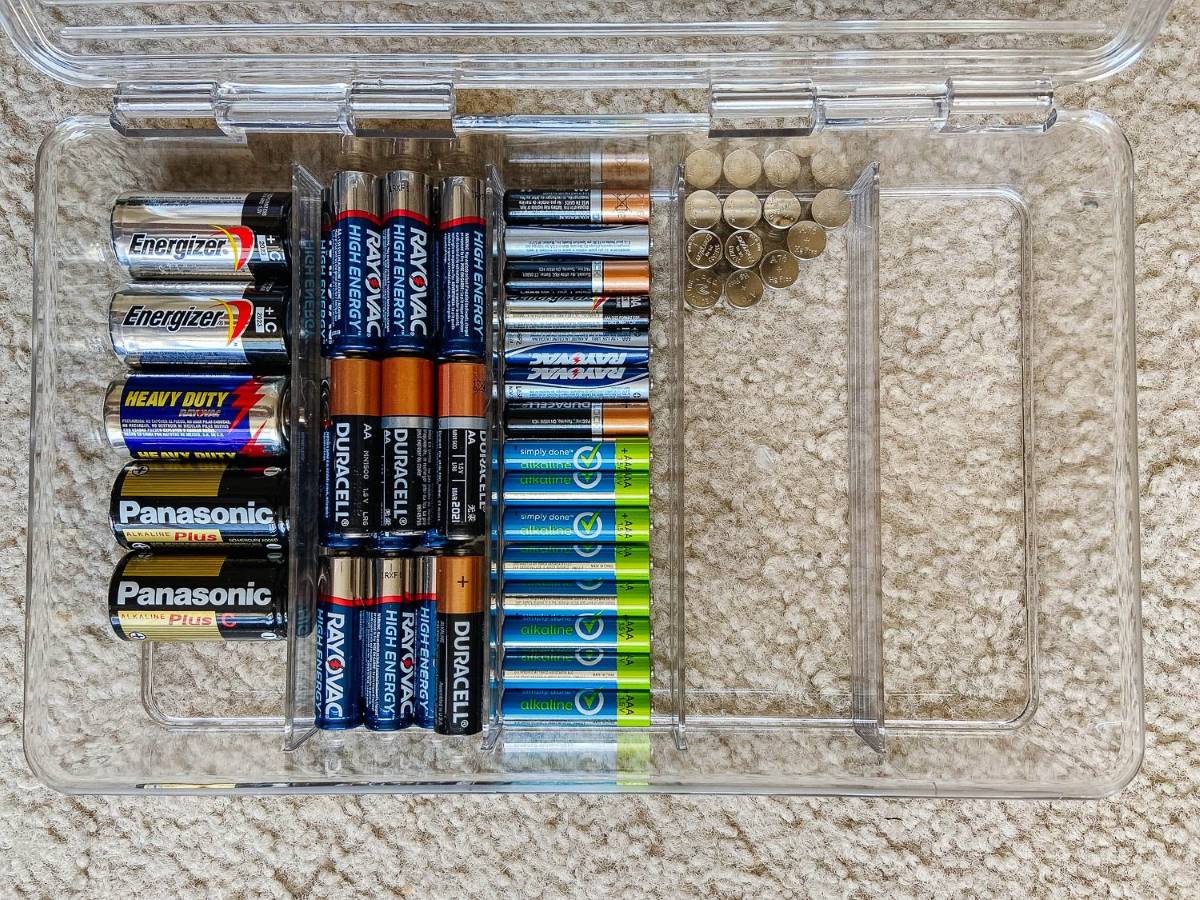
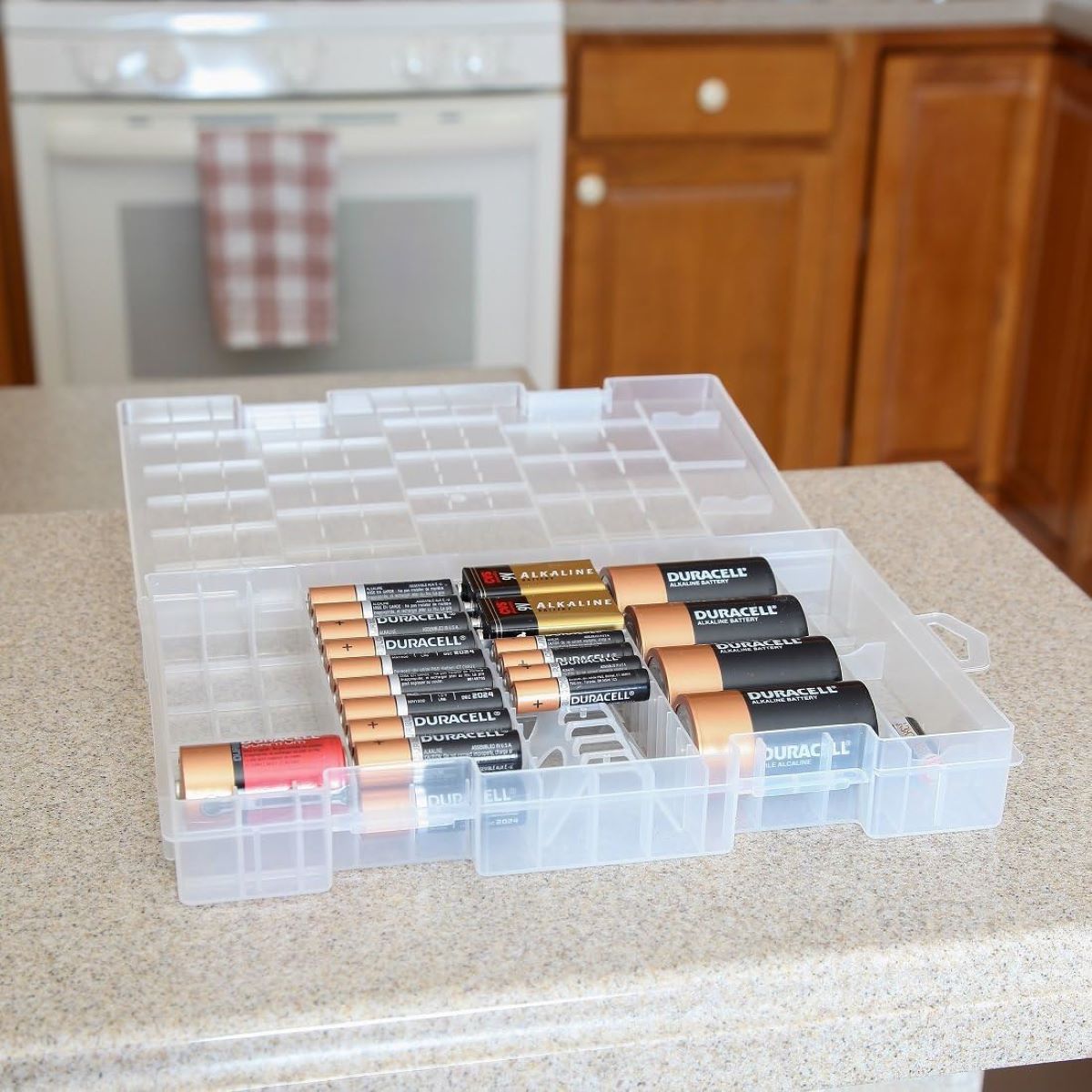
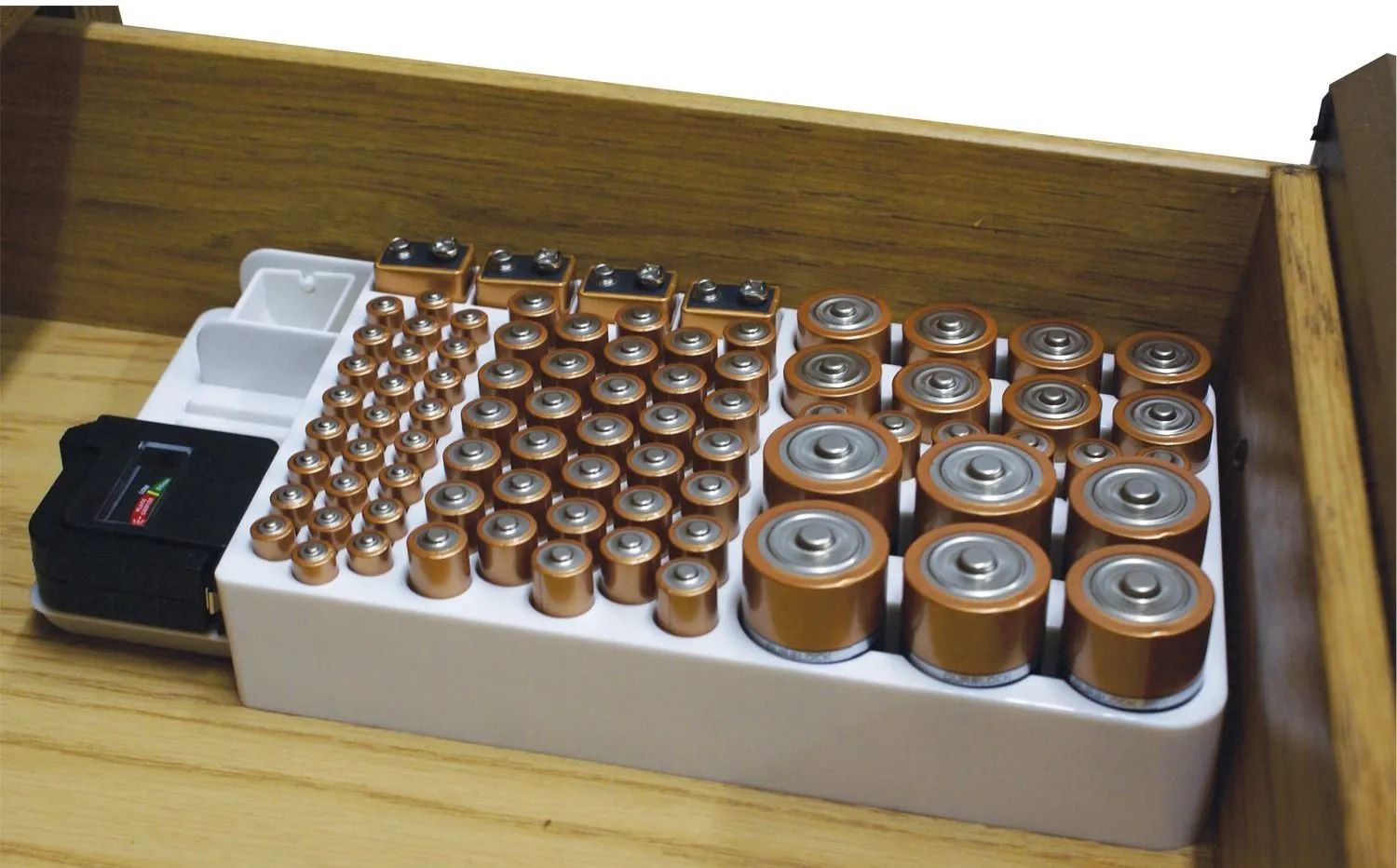
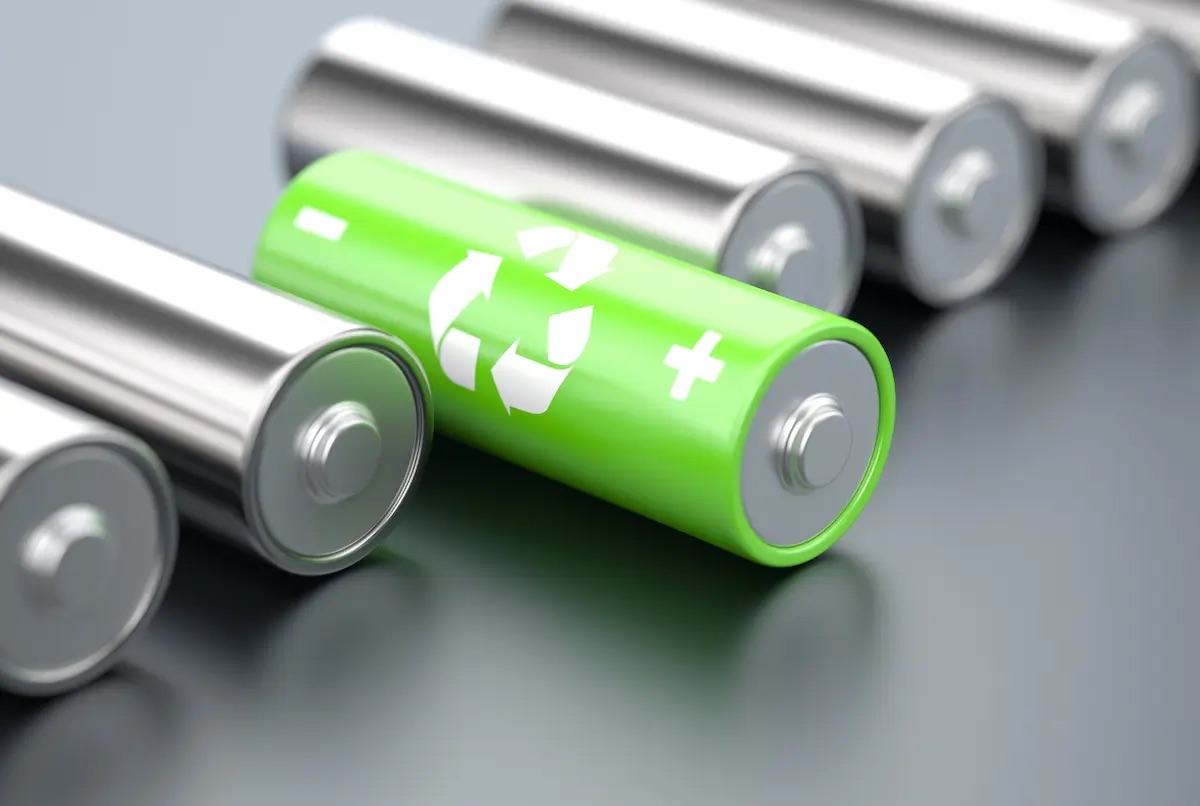
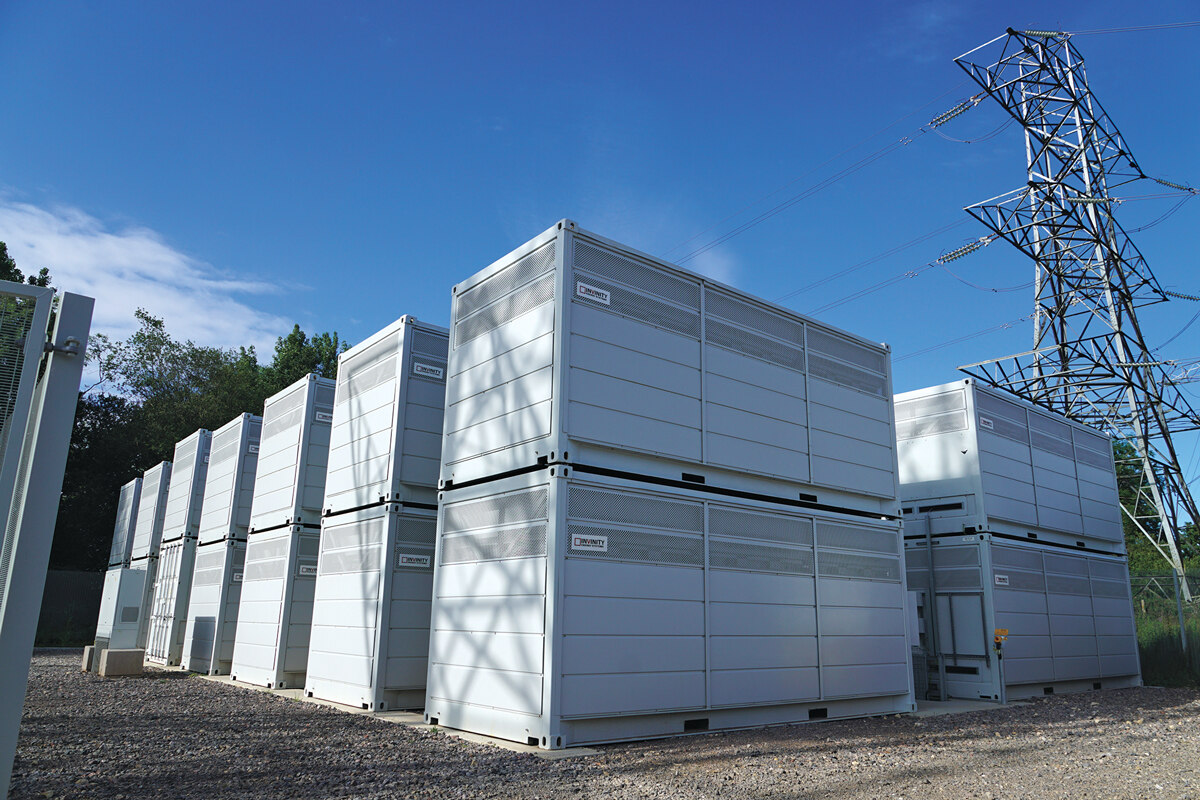
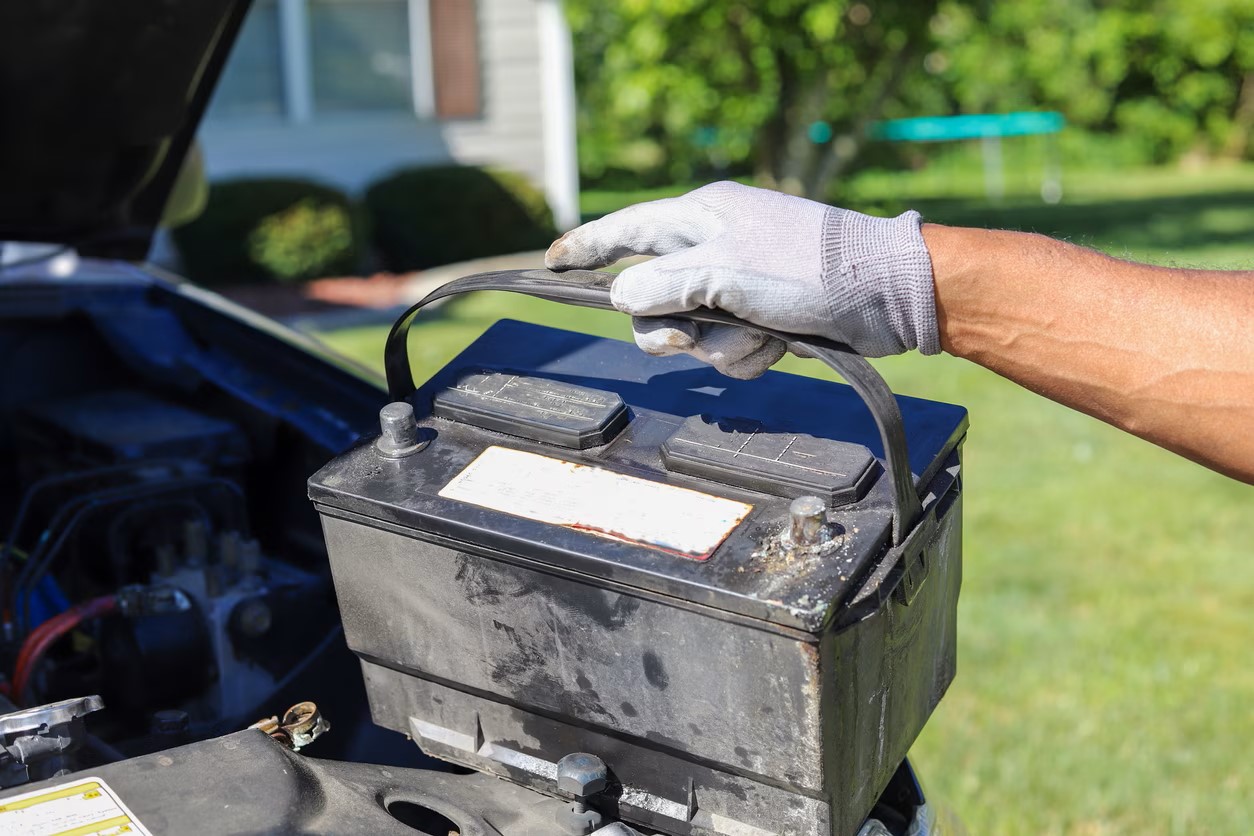

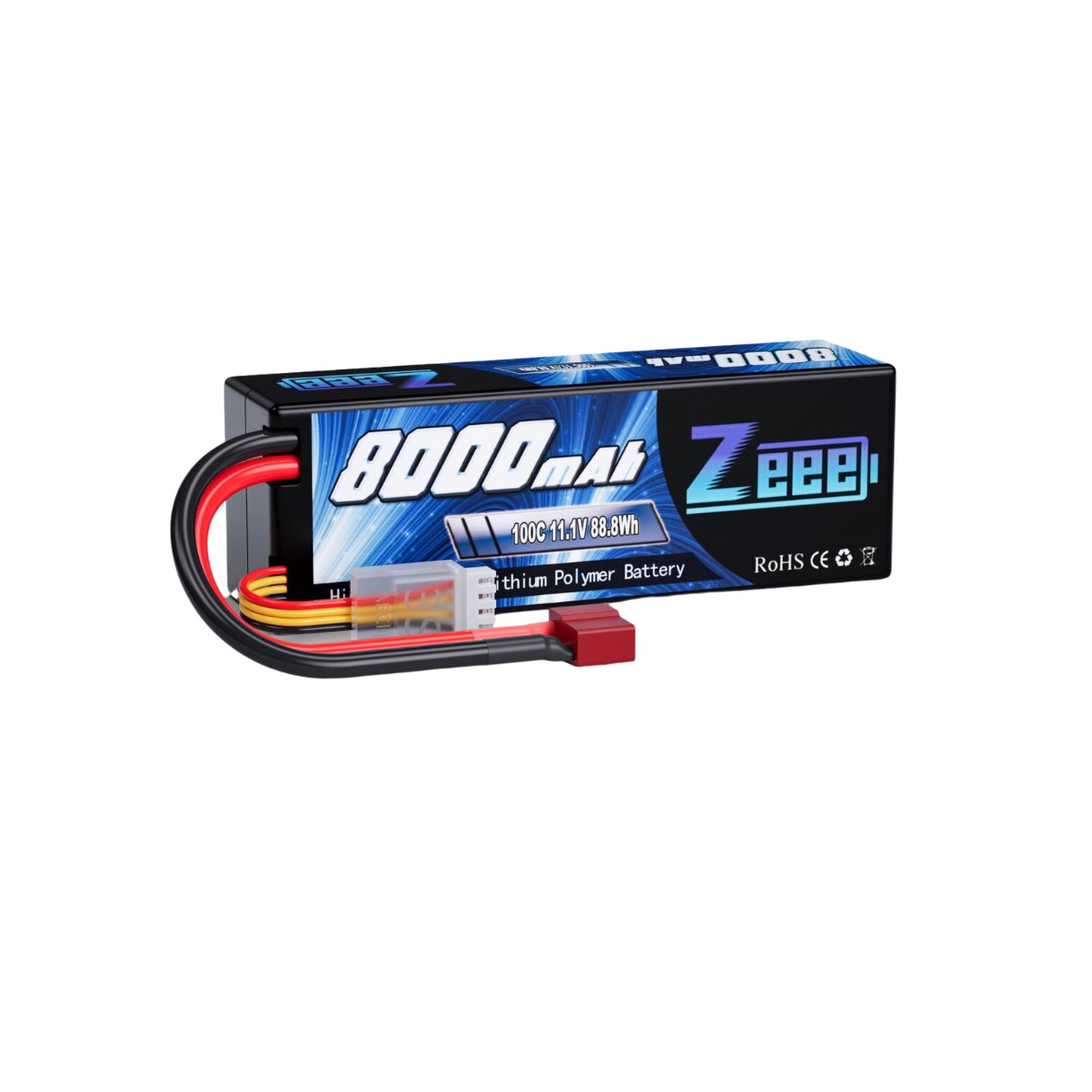
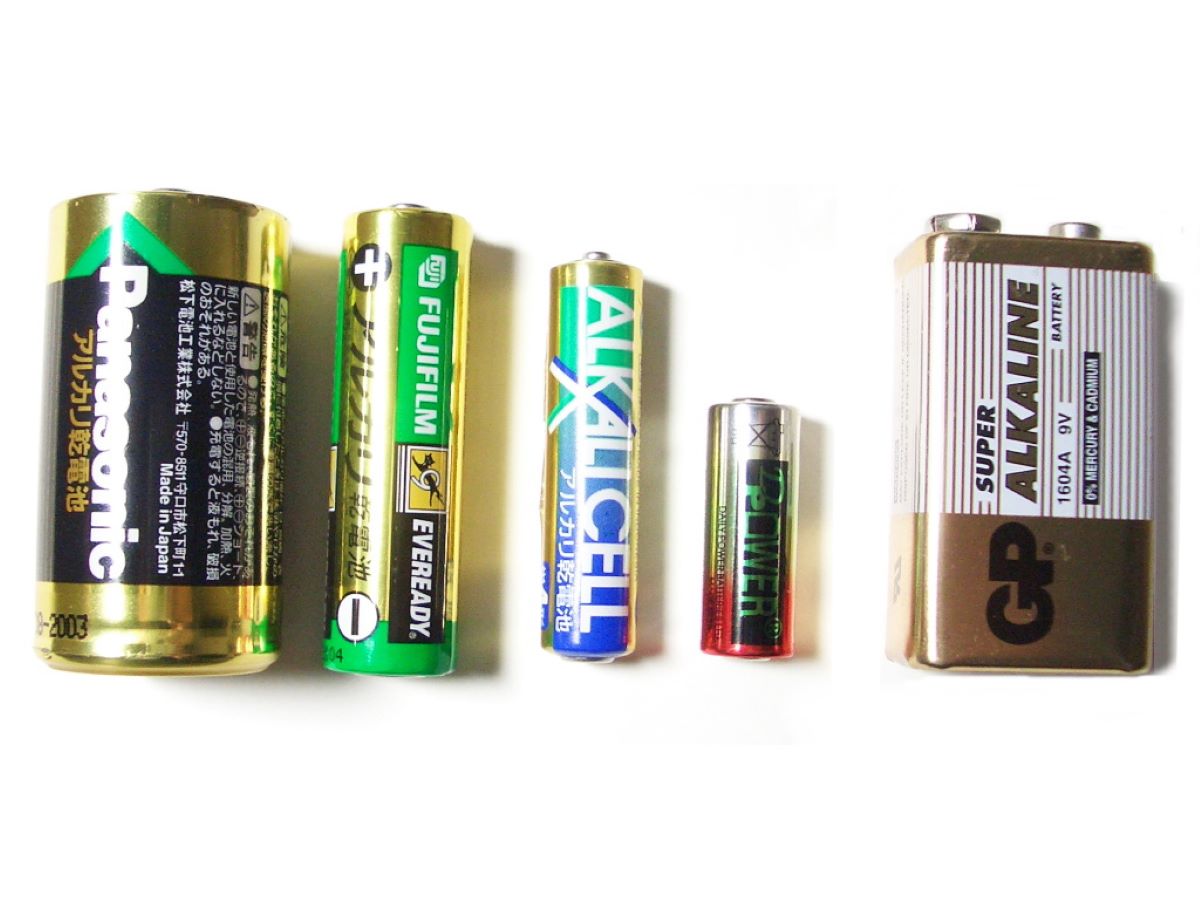
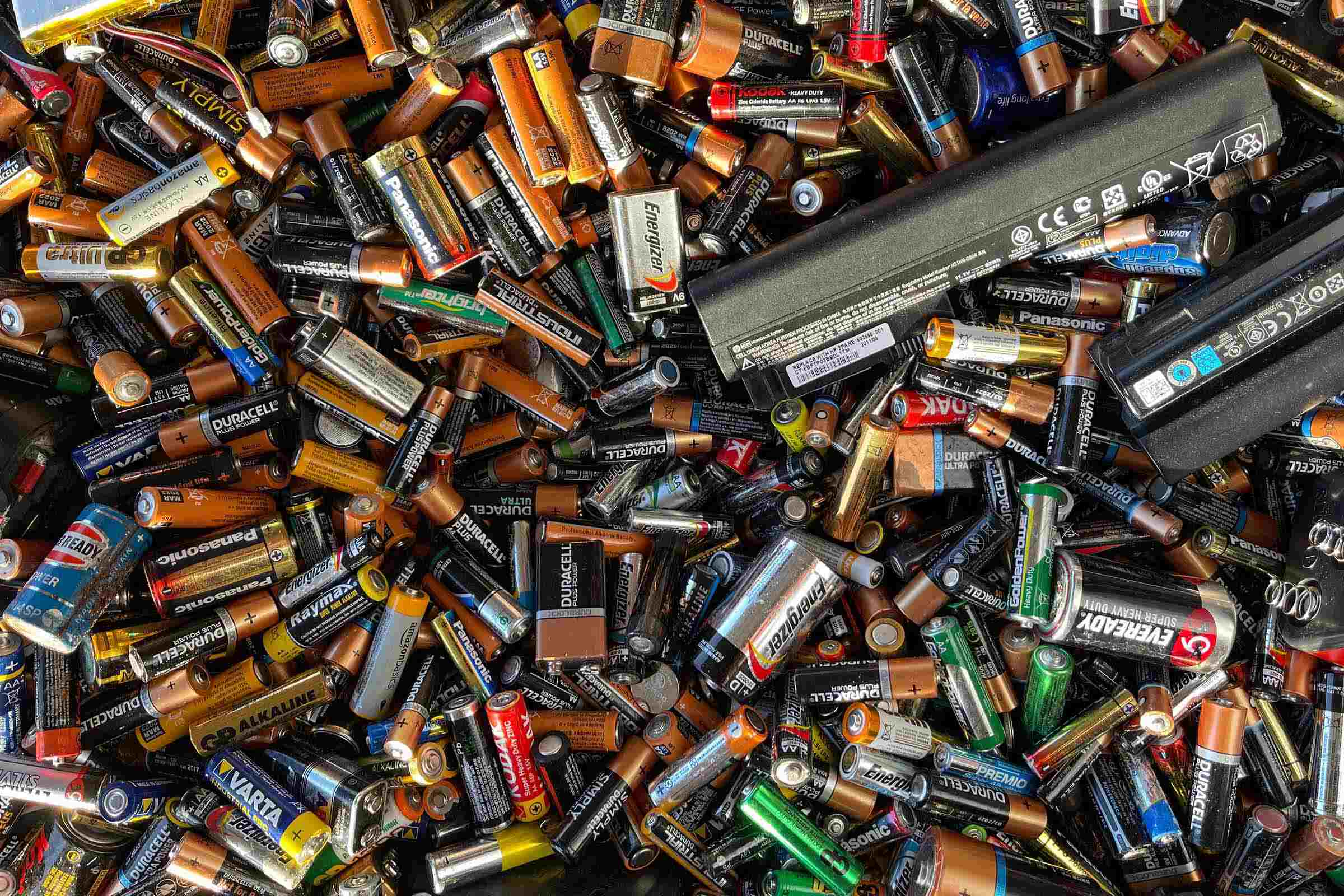
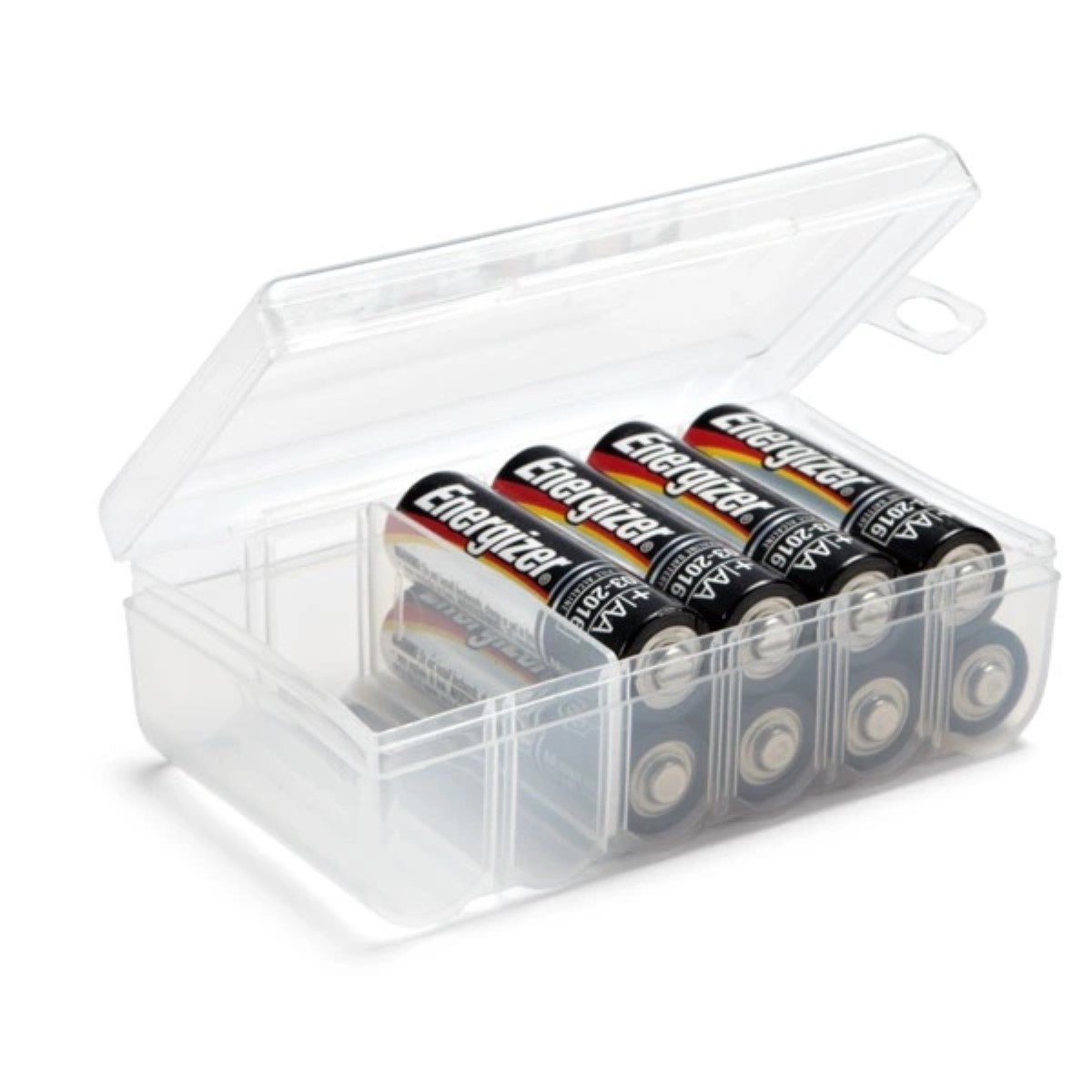

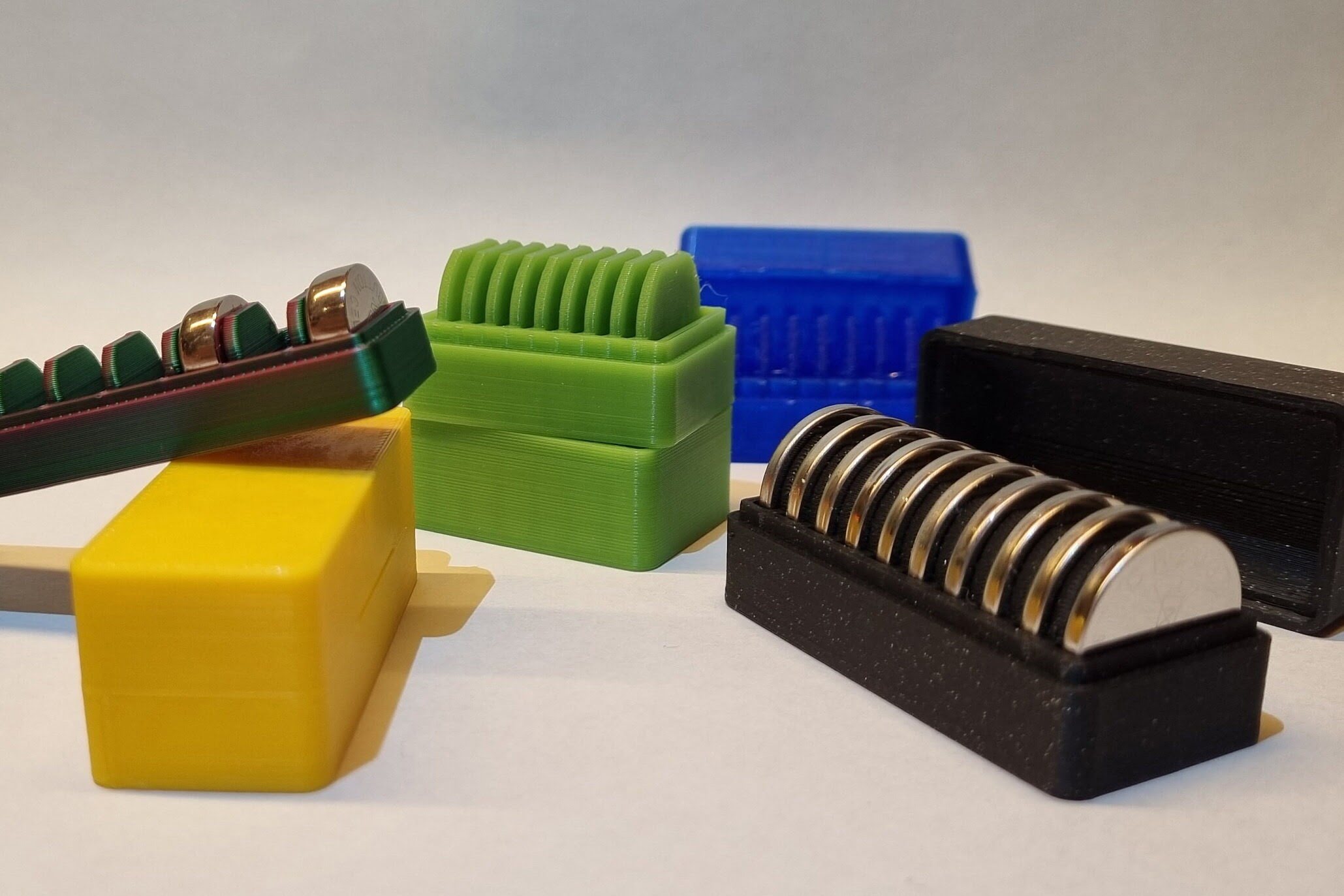
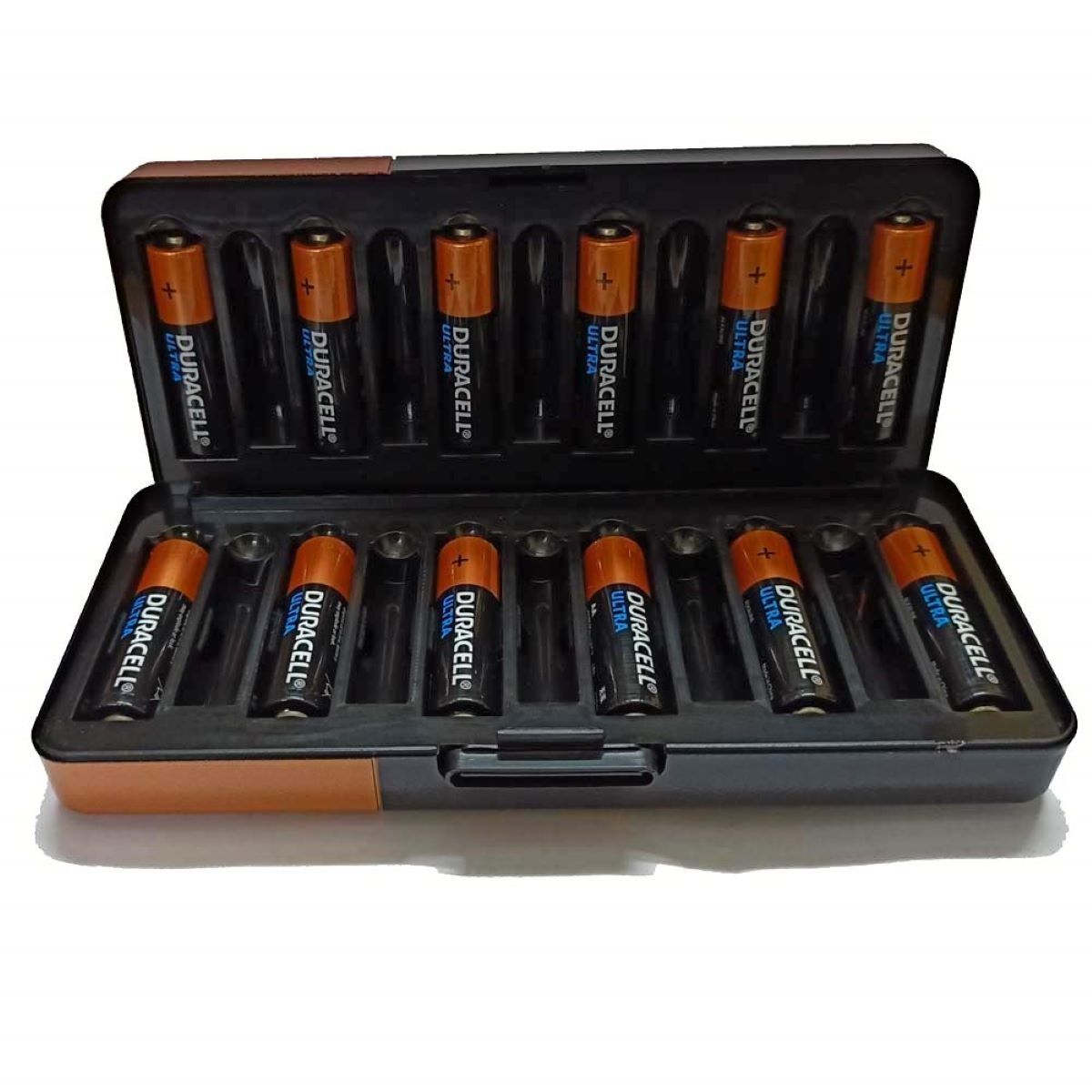

0 thoughts on “How To Store Aa Batteries”